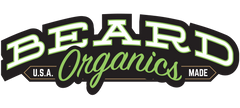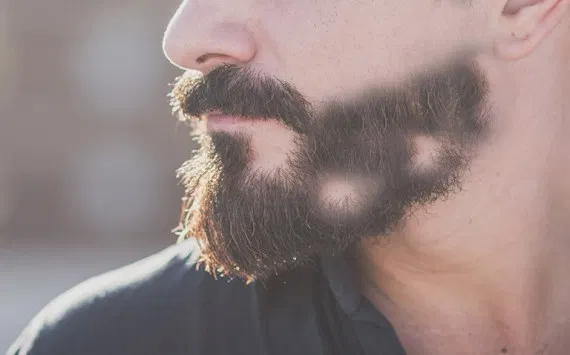By now, we don't have to wonder about what does beard oil do? We know that beard oil works. It moisturizes your beard, gets rid of beardruff, and stimulates hair growth. But how exactly does it do that? What are those magic ingredients that take any dull, old beard and make it feel shiny and new again?
Are these questions keeping you up at night? If so, you’ve come to the right place in search of answers.
The reason beard oil does wonders to your hair is a combination of these three specific ingredients:
Essential Oils have a ton of health benefits and they can treat certain skin conditions. Also, they smell incredible and are used in cosmetics and aromatherapy.
But essential oils are too powerful to be used on their own and can cause unpleasant skin reactions when applied neat. That’s where carrier oil comes in.
Carrier Oils serve as a base that dilutes the essential oils and makes them safe to apply to your hair and skin. They’re derived from kernels, nuts, seeds, and vegetables and they basically “transport” the essential oils to your skin.
Why Do We Use Oil On Beards?
Even though it might seem strange, the modern man didn’t invent beard oil. The origin of this magic liquid can be traced back all the way to ancient Mesopotamia. Those guys loved grooming their beards, creating intricate designs, and even putting gold in it.
Of course, they needed something to make their beards softer and easier to shape, which is why they used beard oils.
Benefits of Using Beard Oil
One of the biggest benefits of using beard oils is that they can treat dry skin. The combination of essential oil and carrier oil in them can help moisturize your skin and get rid of that dreaded beard itch, as well as beardruff. Also, oils can treat patchiness by stimulating hair growth.
Even if you don’t have any of these problems, you’ll still get a kick out of using them since they can help you shape and style your beard any way you want. With just a drop of oil, you can transform any beard or mustache into a glorious piece of art that everyone will admire.
Carrier Oils: Why Are They Good For Beard Oil?

As we mentioned earlier, carrier oils serve as a base that will dilute the much-too-powerful essential oils. They’re extracted from different plants and have been used in aromatherapy, massage therapy, and natural cosmetic products for a long time.
But unlike essential oils, you can use carrier oils all on their own without worrying about skin reactions. That’s exactly why a carrier oil always makes up about 90% of beard oil. Sometimes you can find products made with just one carrier oil such as Moroccan Argan Beard Oil.
What’s more, carrier oil is another huge part of beard butter. In fact, it’s made when you combine the oil with a natural butter, usually shea or coconut.
In addition to beard and body butter, you’ll find carrier oils in all sorts of products, like balms, lotions, and face creams. That’s because they have incredible benefits and can hydrate the skin while reducing inflammation. Also, they do an incredible job at soothing dry and cracked skin, as well as stimulating hair growth.
Best Carrier Oils Used In Beard Oil
|
Carrier Oil |
Main Benefits |
|---|---|
|
|
|
|
|
|
|
|
|
|
|
|
|
|
|
|
|
|
|
Essential Oils: Why Are They Good For Beard Oil?

Essential Oils, like Carrier Oils, are extracted from various plants, trees, fruits, and flowers. Due to the unique extraction process, manufacturers are able to capture the plant’s flavor and scent, or the “essence” of it.
In addition to enhancing the smell, essential oils also have a ton of health benefits, which is why they’re often used in aromatherapy. For example, inhaling a diluted essential oil can help reduce stress and anxiety, as well as headaches.
But, when you use essential oils for beard growth and thickness, in the form of beard oil, you’ll see a totally different set of benefits. Certain types of essential oils can stimulate your hair growth. What’s more, depending on the type, they can help control your skin’s oil production or get rid of dry patches.
So when you combine all those health benefits with the ones carrier oils have, the final result is a magnificent, lustrous beard that’s sure to be the talk of the town.
Choosing Your Notes
Essential Oils add a certain scent to any beard oil they’re mixed in with and you can pick and choose what kinds of notes you want. The three types of notes every essential oil has are:
- Top notes
- Middle notes
- Base notes
Top notes are usually described as having a sharp, assertive, or fresh smell. Some of the most popular essential oils with top notes include lavender, sweet birch, eucalyptus, and many others.
On the other hand, middle notes, which are also known as heart notes, are usually perceived as mellow, warm, and well-rounded. The most common oils with middle notes are tea tree, rosemary, and sage.
Finally, you have base notes which are often described as harsh, rich, or deep. These boost the strength of the two previous types and tend to last on the skin longer than either. Peppermint, patchouli, and cedarwood have base notes.
Also, essential oils are used to add scent to other products, such as beard butter and body butter. Therefore, you’ll find them in natural cosmetics, lotions, and skincare products.
Potential Side Effects
Once the essential oil goes through the distillation or extraction process, it’s too potent and volatile. That’s why it has to be diluted with carrier oil. If you don’t dilute the essential oil with a carrier one and apply it directly to your skin, you could experience an adverse skin reaction.
Best Essential Oils Used In Beard Oil
|
Top Notes |
|
|---|---|
|
Essential Oil |
Main Benefits |
|
Lavender |
|
|
Eucalyptus |
|
|
Lemon |
|
|
Sweet Birch |
|
|
Middle Notes |
|
|---|---|
|
Essential Oil |
Main Benefits |
|
Tea Tree |
|
|
Rosemary |
|
|
Sage |
|
|
Fir Balsam |
|
|
Base Notes |
|
|---|---|
|
Essential Oil |
Main Benefits |
|
Cedarwood |
|
|
Patchouli |
|
|
Peppermint |
|
|
Frankincense |
|
Natural Antioxidant Preservatives Used In Beard Oil
Pure, high-quality essential oils won’t go rancid so most of them don’t have a set expiration date. However, they will oxidize and gradually lose their therapeutic value over time. One way to remedy that problem is to store the oils under strict, hermetic conditions for a couple of years.
But there is a better and easier way to ensure the oils don’t oxidize, and it implies using preservatives. They can not only extend the oils’ best by date but also stop microorganism growth.
Now you’re probably thinking, I don’t want to use beard oil that has a ton of preservatives or chemicals in it. Luckily, you don’t have to, thanks to vitamins E and C.
Vitamin E

Vitamin E is a fat-soluble vitamin that’s found in vegetable oils, nuts, seeds, and leafy green vegetables. It can help kill bacteria and boost your immune system.
Also, Vitamin E Oil has a ton of incredible skin benefits and applications in both medicine and cosmetics. When applied topically, Vitamin E Oil can reduce the appearance of scars and promote skin rejuvenation.
Since it’s such a powerful antioxidant, Vitamin E Oil can stop the oxidation process that goes on in essential oils. Furthermore, it will extend the shelf life of your favorite essential oil and prevent it from hardening or turning murky.
Vitamin C

Just like Vitamin E, Vitamin C is also a pretty potent antioxidant that can be used as a natural preservative for essential oils. Since we can’t produce Vitamin C, we have to get it from different fruits and vegetables.
Vitamin C Oil offers a wide variety of benefits to food and cosmetic products. It can extend their shelf-life and slow down the oxidation process. What’s more, Vitamin C Oil will help fight off any microorganism that could appear in your essential oils and make you sick.
Moreover, adding Vitamin C to any beard oil mixture will give it skin healing properties. It will also brighten your skin and give your beard hair a nice, shiny finish.
Now that you know all the things that make up your favorite beard oil, it’s time to check out our selection! We carry a wide variety of different all-natural beard oils, with different scents and benefits, all fit for a king.




